Friends & acquaintances talk about the hubris of celebrity consultant Suhel Seth, who hit the headlines after several women accused him of sexual misconduct.
New Delhi: When they ask, and they will, I must say that I spoke to no one.
A dozen phone calls were answered by sources who insisted on remaining anonymous. They spoke in hushed tones about the parties — the endless supply of expensive alcohol that kept their glasses filled till late into the night — and the “clean lines and minimalist decor” of his 6,000-square-foot home in one of Gurugram’s poshest localities.
Stories were shared about a black Mercedes glittering in the front porch of his New Friends Colony home. And the women, so many women, that went in and out of his life.
Suhel Seth is “everyone’s friend”, said one acquaintance, but right now, “I don’t want my name anywhere near this”.
The walls protecting Lutyens’ Delhi rise in the shape of an inverted pyramid, its corridors of access getting wider the higher you climb.
And Seth climbed all the way to the top, managing to fashion a legacy out of a contact list.
With friends like Union minister Arun Jaitley, industrialists Ratan Tata and Anil Ambani, and legal eagle Raian Karanjawala — a selfie with Shah Rukh Khan and references to high-profile journalists like Rajdeep Sardesai and Barkha Dutt thrown in — Seth pretty much sits cross-legged and safe in the middle of a very rich and powerful nexus of India’s elite.
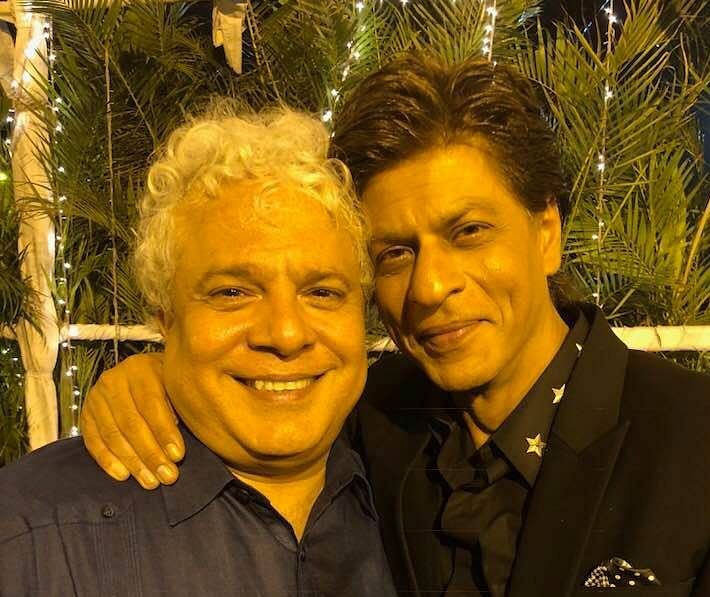
Today, celebrity consultant Seth’s branding expertise is facing its truest test as he grapples with the biggest setback to his reputation to date — the multiple allegations of sexual harassment and assault that have surfaced against him in the recent past.
#MeToo avalanched into a storm Seth couldn’t prepare for, and, subsequently, one he can’t immediately fix.
And perhaps the greatest irony is that the hashtag that felled him was in part the gift of an American actor he hosted at one of his glitzy parties very recently — Rose McGowan, the first woman to accuse movie mogul Harvey Weinstein of sexual misconduct, was photographed partying at the advertising mogul’s house just last year.
Seth, for whom being seen with the right people in the right place at the right time was of primordial importance, is suddenly nowhere to be found. Twitter and Facebook are silent, and the recurring guest stars in the biopic of his everyday life haven’t spotted him on set. Even the website of his branding consultancy company, Counselage, is “currently undergoing scheduled upgrades”.
Those who moved in the same circles as Seth speak of him with see-saw affection — oscillating between an acknowledgement that he is an entertaining, jovial man, and the retrospective realisation that perhaps they should have checked his hubris sooner.
“I think we all were in denial,” a journalist who is friends with Seth told ThePrint. “We excused his behaviour because ‘That’s just Suhel’, you know.
“I think a few people even spoke with him — about the way he used to talk to and about women,” the journalist added. “But we didn’t confront him, and we should have.”
A mischievous child
Seth was born in May 1963 in West Bengal, where his father owned a chemical factory in Calcutta. After spending his initial school years at La Martinere for Boys, at age eight, Seth was “bundled into a train overnight and packed off to St Joseph’s College, Nainital, because there was a threat on his life by the workers in our father’s factory”, his brother Swapan Seth wrote in an article for The Huffington Post in March 2015.
By his brother’s account, Seth was also a mischievous child — tricking him into punishment, and later forcing him to jump lights on his motorcycle.
However, Seth prided himself on his love and loyalty for his family, especially his mother. Many years later, when he hosted the who’s who of India’s political tinseltown at parties in his New Friends Colony flat, his mother would remain by his side.
“Every day I eat my lunch with my mom,” Seth would tell The Times of India in 2015. “And that’s the Calcutta upbringing. I love my parents the most in the world and feel that the only two people who love you unconditionally are your parents and your dogs.”
Talking about dogs, the world came to know, almost accidentally, that he named his ‘Google’. In a series of leaked tapes, he was heard explaining to lobbyist Niira Radia that this was “because he can find anything that none of us can”.
At a young age, Seth developed a penchant and admiration for theatre, noticeable in Swapan’s account of how his brother “would wake up at 6 am and transform into a character called Suhee Sexy On The Mike”.
He “would sing numbers while I drummed on the dining table”, Swapan wrote.
His proclivity for performance would continue into adulthood, winding its way in the form of Shakespearean quotes sewn casually and confidently into drawing room banter.
Seth continued to pursue theatre at Jadavpur University, where he completed his bachelor’s in English.
After college, his first job in the advertising industry was with Contract Advertising, set up by Hindustan Thompson Associates (now JWT), where he worked under the guidance of Shiben Dutt. Disagreements with the administrative style of the branch manager, whom Seth once referred to as an “absolute crass idiot”, led him to quit in favour of Response India, newly set up at the time by chairman Ram Ray.
A stint at Ogilvy & Mather followed, where Seth found, by virtue of pitching to them as an ad-man, his first foot-in-the-door contacts: Russi Mody and Aditya Kashyap, titans at Tata Steel at the time.
“We ended almost every meeting with some fine port while chomping on cigars,” Seth went on to write about the relationship in an article for Mint on Sunday in 2015.
In the background of his professional bildungsroman, jazz music played, men wore suits and pretty women laughed loudly at their jokes. For Seth, the Calcutta of the 1980s embodied an era of the real Mad Men – “bright, cultured, refined and complete maverick(s)”.
“In the evenings, we were often spotted with exquisite women chirping over chicken gold coins at the Saturday Club, which then was more civilised than it is today,” he wrote.
Building a network
Fuelled by a taste for the good life, Seth co-founded the advertising agency Equus with brother Swapan in 1996. The company, one of his friends told ThePrint, was named after Peter Shaffer’s 1973 play Equus.
The start of this new chapter, however, called for bigger fish to fry, and strictly, fish that weren’t only from Calcutta.
According to journalist Mihir Sharma’s account of this professional transition, Seth knocked on the door of Hindustan Lever’s head of marketing, Shunu Sen, “presenting him with three names as references, the first of which was Russi Mody”. The same year, Seth managed to charm Sen into opening a two-man consultancy with him named Quadra.
Sen, at the time, was also the country head of WPP, founded by Martin Sorrel — the biggest name in advertising and PR across the world. In turn, Sorrel’s multinational PR conglomerate invested significantly in Equus, later to become a part of WPP’s ‘Red Cell’ network.
“In the advertising world, Shunu got him going, connected him to people,” a source from the media industry told ThePrint.
“He (Suhel) had a way with words, was charming and articulate in English, knowledgeable about high-brow subject,” the source added. “He was the ideal fit for an ad-man.”
The Calcutta man, who still tweets that he misses Kolkata and continues to reminisce about the “high-culture of Park Street”, had slowly, and deliberately, flown the nest. Even his choice of co-author for a book about Calcutta, Sharma noted, was a man who embodied everything Delhi — Khushwant Singh.
I MISS KOLKATA ALL THE TIME. Each and every second of my life. ALL THE TIME. Will be there for the Pujos… https://t.co/CEGUVX81fL
— SUHEL SETH (@suhelseth) October 8, 2018
The next decade marked Seth’s rapid and steady assimilation into the boardrooms, and living rooms, of India’s top CEOs, celebrities and politicians.
In 1999, Seth, alongside his mentor and partner Sen, worked closely on the advertising campaign for the then Prime Minister Atal Bihari Vajpayee.
By June 2002, Seth had accumulated enough cultural, social and economic capital to fly solo. He started his own brand marketing consultancy named Counselage, which picked up four major clients shortly after kicking off the ground — Coca-Cola India, the Delhi government, Jet Airways, and the World Travel and Tourism Council.
Ten days after its inception, Martin Sorrel’s WPP had already expressed interest in investing in the one-man venture.
A year later, Seth was more than just facilitating high-stakes meetings between clients, he was the majority stakeholder in the country’s biggest news channel.
In 2003, Star News, a media channel owned by Rupert Murdoch, was struggling to find a loophole around the government rule that channels broadcasting from India can’t be more than 26 per cent foreign-owned.
The creation of Media Content and Communications Services (MCCS), considered by many to be a shell company, brought the entire operation above board: 30 per cent of it was purchased by Seth, who bought out 25 per cent from Kumar Mangalam Birla.
When the government refused to play ball, arguing that the organisation needed to be owned by one majority Indian stake-holder, and not a group together constituting a majority, the company was acquired swiftly by Calcutta-based publishers ABP for Rs 740 million. Everything was in the clear, the show could carry on.
“That’s the thing about Suhel, he’s not the suitcase guy, because now things are done without suitcases,” a source in the IT industry told ThePrint. “Nearly everything in India is fixed one way or another, but Suhel Seth comes up and makes this whole thing legitimate and above board, but at a high-ticket. Nothing he did was illegal.”
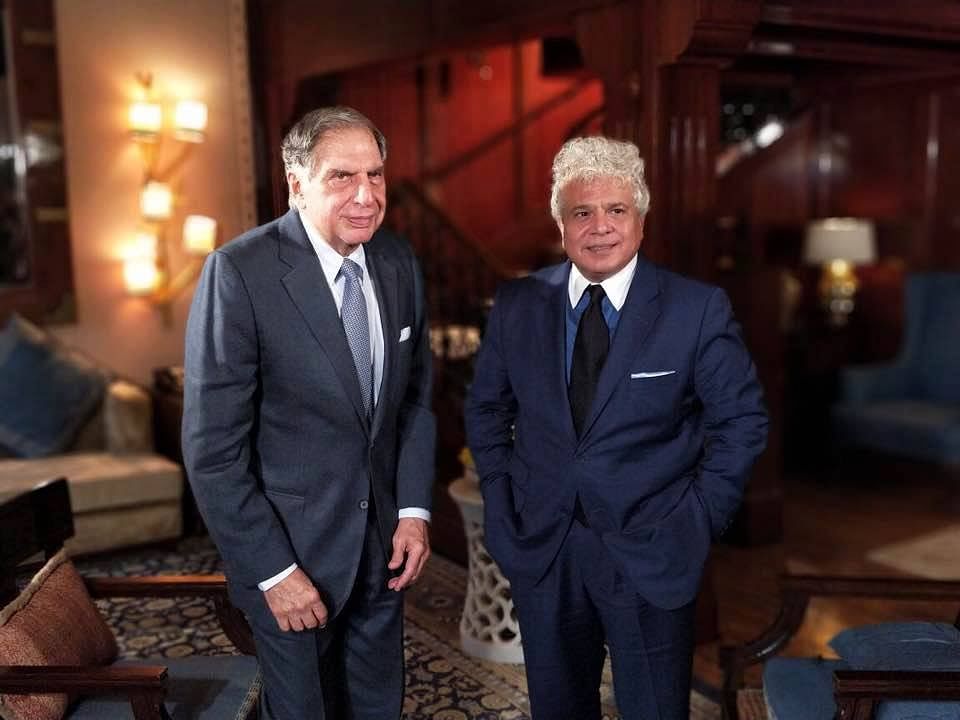
By 2006, Seth had resigned as the CEO of Equus, shifting his focus entirely to curating the image of India’s most powerful businessmen. Counselage, in that sense, was not a conventional marketing organisation, its special skill was in tandem with that of Seth’s — making connections with and for people in high places.
“Suhel managed to sweet-talk the clients into signing on, but he couldn’t retain them for more than six months, maybe a year,” the IT industry source said. “Swapan was behind most of the media campaigns at Equus, and Suhel, to his credit, was the face.”
Also read: Women like me are fighters not victims: Tavleen Singh’s open letter to Barkha Dutt
A television phenomenon
Around the same time, Seth migrated from the living rooms of his elite friends into the living rooms of the average English-speaking Indian. He was everywhere, talking about everything, on primetime television debates — fighting the Big Fight, to commenting on the meaning of “anti-national” on NDTV during the JNU ‘sedition’ saga.
He had found a comfortable and seemingly evergreen seat among domain experts on a wide variety of topics — films, finance, politics, women’s rights, literature, fashion, spirituality — you name it, and Seth had an opinion to share.
“He is an articulate, English-speaking, well-read man who didn’t shy away from making controversial statements,” a journalist told ThePrint. “At the time, the debate format was expanding rapidly across the country, and he quickly became a TV talking head.
“It’s his television appearances, I think, that really created the monster. The small screen can create a mini-celebrity culture — where you’re famous just for being famous,” the journalist added.
He was invited to anchor panels on multiple editions of the Jaipur Literature Festival. He wrote books, was called for celebrity birthday bashes, and foreign trips. He was asked to conduct exclusive interviews with business magnates, launch books, and comment on live TV about issues ranging from cricket to education.
He made his way to the board of several corporations, including multinationals — Cavendish Royal Academy of Dramatic Arts, London, British Airways (briefly), Citibank, Coca-Cola, Drayton Capital, and Max Foundation.
Suhel Seth’s “conquest of Delhi” may have been “fast and furious”, as journalist Sagarika Ghose wrote in a 2003 column in The Indian Express titled “The 30 per cent man”. But it wasn’t so much a conquest as it was an alliance.
“He succeeded very easily in Delhi because people gravitated very easily towards him – this is a darbari city, where people want to be in close proximity of those they think have power,” an eminent journalist said. “And he radiated power, access and a VIP culture.”
“In a changed India, I’m surprised there aren’t more Suhel Seths,” a businessman and known associate of Seth told ThePrint. “He’s successful at the game he’s chosen to play, and it was a game being played by everyone in Delhi.”
‘Frankenstein’s monster’
But after a certain point even Delhi could not absorb the man it helped create. Seth had more than just conquered the capital — he had become synonymous with it.
His disposition towards crass, unfiltered speech alienated a lot of the friends who supported him up the ladder, and his reputation at the lavish page-3 parties soon took an uncomfortable turn.
“The image got bigger than the man, and he thought he could get away with it because he was Suhel Seth,” a media personality said. “He became loud and aggressive, throwing names of powerful people into conversation, saying controversial things and using abusive language to draw attention towards himself,” the media personality added, “And when he drank, he just became more abrasive.”

A quality of Seth once seen as disarming — of being over-familiar with people accustomed to a certain reverence — had started to rub people the wrong way. He would reportedly shout across the room — “Hey Chidambaram!” or “How’s it going, Indrani!” — to reiterate his closeness with political and social influencers to everyone within earshot.
Sources said that in the early 2000s, when Seth was called upon by two young journalists to anchor a segment of their new show on Doordarshan, he would arrive in Bombay with two-weeks worth of laundry. “It’s a film star story,” a source said. “The hotel bill would jump and obviously, the producers weren’t happy.”
Rather fittingly, Seth was offered the role of business tycoon Kumar Kukreja in Madhur Bhandarkar’s 2015 film Calendar Girls — a movie about models and the fast-life. Fugitive industrialist Vijay Mallya also had a cameo in the film.
Seth’s own life had come to quickly resemble the character he played on screen — industrialist Naveen Jindal was allegedly asked to send a helicopter to retrieve Seth when he didn’t want to make a commute by car. Sorrel’s name was used indiscriminately as a weapon of intimidation in advertising board-rooms.
Seth, rather conspicuously, would receive phone calls from important people in the company of other important people — “Hey Piyush!” he’d say loudly, for the benefit of everyone present.
“Other than his fixed assets, everything was paid for by someone else,” a source said.
The fact that Seth enjoyed the good life is not a secret. To the contrary, he celebrated it openly.
“Even 10 years ago, it would have been ridiculous for someone to spend 6.4 million rupees on a car — but not anymore,” Seth told The Telegraph (UK) in 2005, as he showed off his new yellow Porsche Boxster. Seth was among the first in India to buy the £80,000 car. “Rolex, you might say, is the new religion,” he added.
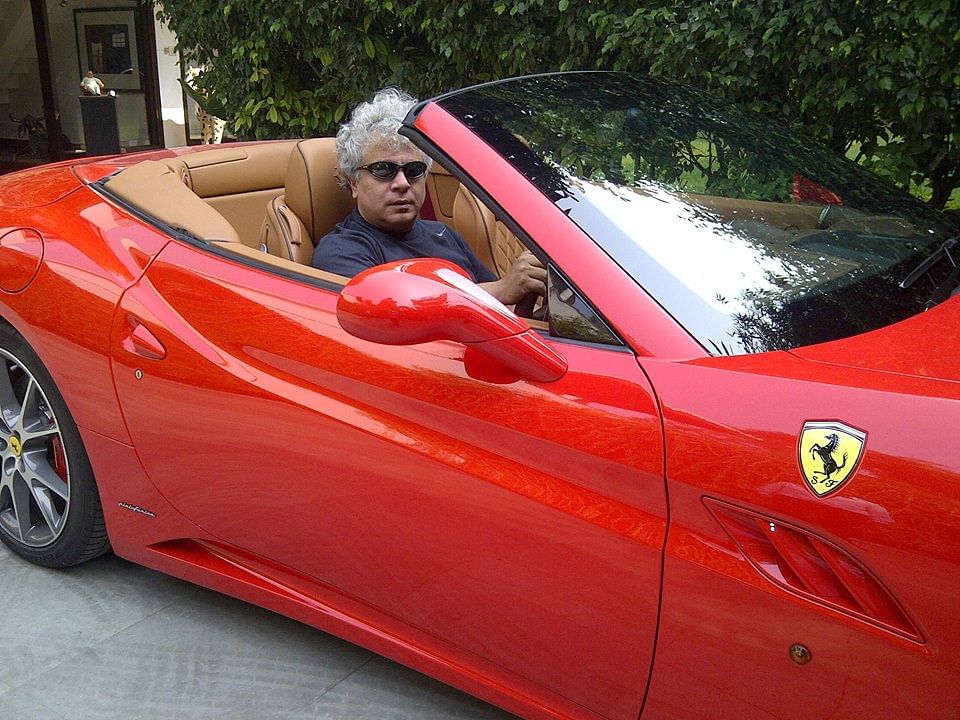
According to estimates by property brokers in the city, Seth’s immaculate apartment in The Magnolias Gurugram is worth anywhere between Rs 15 and 17 crore today.
This life full of excesses, however, seemed to spill over, and for an “egotistical” man, by his brother’s own admission, the lines between what Seth earned and what he felt entitled to became increasingly blurry.
Of women and cows
A cake in the form of female breasts for his 40th birthday. An extensive first-person account on why travelling solo is the best for men — “You have a legitimate reason to have a dirty martini at The Carlyle in New York without worrying about what the cow (your wife) must be doing to your credit card,” Seth wrote for The Economic Times in 2014.
Wives remained cows for Seth even in the ‘Survival Strategies’ advice column he wrote for The Telegraph (India).
Seth was married from 1989 to 1993 to a woman named Sandhya Narain. In an interview, he said the reason they grew apart is that he wanted kids, while she wanted to focus on her career.
In a column about his career trajectory, he referred to the “charmingly seductive Anglo-Indian women who frequented the Dalhousie Institute”. He recalled how he first met former quizmaster Derek O’Brien, “one evening, while attempting to seduce a neighbour’s daughter in the park”.
Flirting consensually however, or using sexist language, does not constitute harassment.
A source present at the Jaipur Literature Festival in 2017, told ThePrint that “Seth, at the Penguin party, in plain view of dozens of authors and members of the international press corps, visibly groped and made out with a young lady who was plainly and repeatedly trying to push him away”.
Some of the personalities present debated whether or not to help the young woman, but decided at the time that she was “a grown ass” woman and could take care of herself.
At the same festival, Seth had been a part of a panel on misogyny and mansplaining.
Another source in the advertising industry recalled a party, thrown by a channel, that he attended with Seth at a Delhi five-star hotel in 2005.
Also read: The women who are not for #Metoo in India
“A young girl, from the channel itself, approached the group to come and say hello,” the source said. “Seth quickly noticed and went after her — he introduced himself and said, ‘So what makes you look sexy tonight?’
“As he kept getting drunk, he kept putting his hand on her shoulder, and when she would walk away, he would walk after her,” the source added. “Everyone was seeing, but this guy is also on so many panels. The girl tried to leave, but Seth just wouldn’t budge. At some point, four to five people from the organisation had to come and take him away, after which he started saying that she was rude to him because she wouldn’t talk to him,” the source said.
Frequent guests at his parties recall a slew of different women on his arm at every occasion — a chef, an actress, a model.
“Suhel would often talk about them later,” a friend of his said, adding, “There were always beautiful people at these parties, he collected them.”
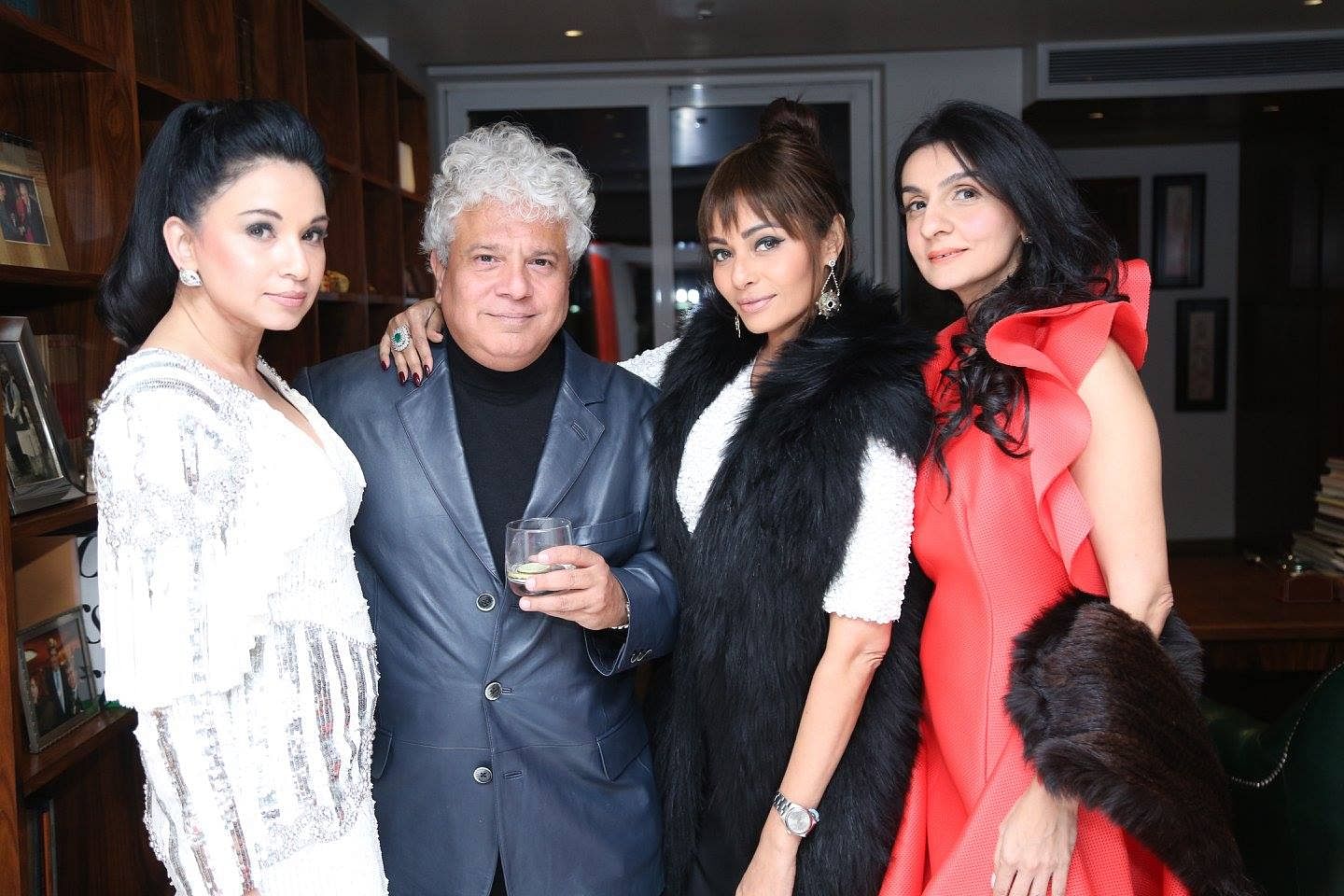
“By the end of it, Suhel had created the myth of Suhel — he became a prisoner of his own hubris,” a journalist said.
The report has been updated to name Suhel Seth’s place of residence as The Magnolias. It was previously incorrectly named as The Belaire. The error is regretted.


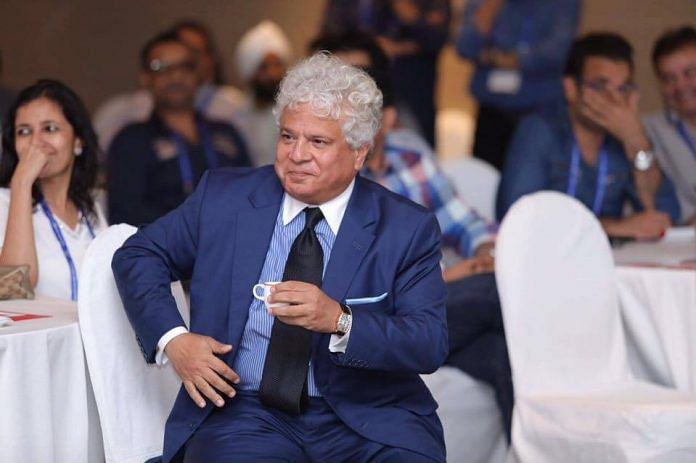

SO HELL SHIT
Like any other Lutyens scum
While at college I used to find Seth’s answers to a personal column(most probably in telegraph newspaper) very quirky and enjoyable. I used to love seeing him on TV and reading about him. He was sort of an icon for me. I can only say that the foundation of everyone’s life is based on self-discipline and humility. He would still have achieved all he has, had he known that if haughtiness and straightforwardness was making him successful, he was to stay vigilant because a successful man is what he is minus his achievements, it is his ability to stay grounded. Waste is all his talent and humour!!
Decadent lifestyle. Inevitable when one gets super rich. I also wonder and marvel at the huge money admen and marketing consultants like Suhel Seth make which helps them lead such a life.
How did he treat the beautiful women seen in the picture? Did he take liberties with them as well and will one of them come out with a story of what happened before or after this picture was taken?
The power of wealth temporarily blinds victims I guess. The girl who came forward with her story about harassment by suhel Seth was actually accepted a drop home in his chauffeur driven car she reported.
Suhel Seth has temporarily suspended all appearances online and offline. Is he going to try the Abhishek Manu Singhvi technique of going underground for an extended time period and resurfacing unscathed with no questions asked, a few months later. Singhvi did so when he was caught with his pants down. 6-7 months later, he was back as Congress spokesperson on TV with not even his opponents referring to his scandal when they sparred with him on nightly TV debates. Even Arnab Goswami spared him.
I have seen suhel grow since 1996 when he landed first time at ABP office of New Delhi House . I was an executive then. I am afraid his behaviour was extremely obnoxious and always threw names to support his power . Sad to see such article in The print . The high and mighty are also responsible for the Frankenstein called suhel
I get the impression that the society will let you get away with everything if you have money. You buy respect, you don’t earn it. Unfortunately, it is true all over the world.
Tbis article is by a woman. The movement’s gng nowhere.
This guy is a total ass, stop making him a hero. I have nothing against his accomplishments but this lackluster behavior towards women should be condemned.
Reputation does matter a lot, but character leads the way. An age old wisdom.
Shekhar Gupta is poor man’s Suhel Seth. Same type of wheeler dealer who has not been called out yet and is trying to ensure their is one competitor less. An honest journalist would have brought Suhel type down decades ago.
Lust with Glass of Alcohol in Hand! OMG!, Seems the indivual is very very sick and has perhaps hit bottom. Hope he finds a solution at the earliest.
स्त्रीलंपटपणा व त्यात मद्य मग बिचाऱ्याचा आजार अधिक वाढणार यात नवल ते काय? बरे झाले त्याने तळ गाठला आता तरी उपाययोजना शोधेल????
Since the print is running a open letters between Barkha Dutt and others in the past few days, I am surprised that the author of this article has written without any mention of the complaints against or even what Barkha Dutt thought about these complaints. During her heydays, Suhel Seth was a regular on her debates. He still is a regular on NDTV debates hosted by Vikram Chandra.
An ass of a man . Literally.
I honestly feel what the print did by writing this article is much sheer moral crime than what seth did to those innocent girls. What this article is trying to proof? Some TAREEF, more more TAREEF. Isn’t? You have put his concise biography or to say his Curriculum vitae because the article stricly potray his achievements.
Please understand the seriousness of the issue and then deliver.
Fascinating column. What stands out is the behaviour of dozens of people at the JLF in 2017 – who must conform to a higher standard than guests at a channel party in 2005 – saw Suhel Seth grossly misbehave with a young woman and covered their cowardice by thinking she was “ a grown ass “. A certain moral decay and hollowness.
Excellent piece of writing. Would have been perfect it the writer had dovetailed the complaints against him in the story.
He was not on the board of Coca-Cola.
This article is a PR building exercise for Suhel Seth so you fall into a love hate relation with him. This is written as if he leads a life every man secretly wants.